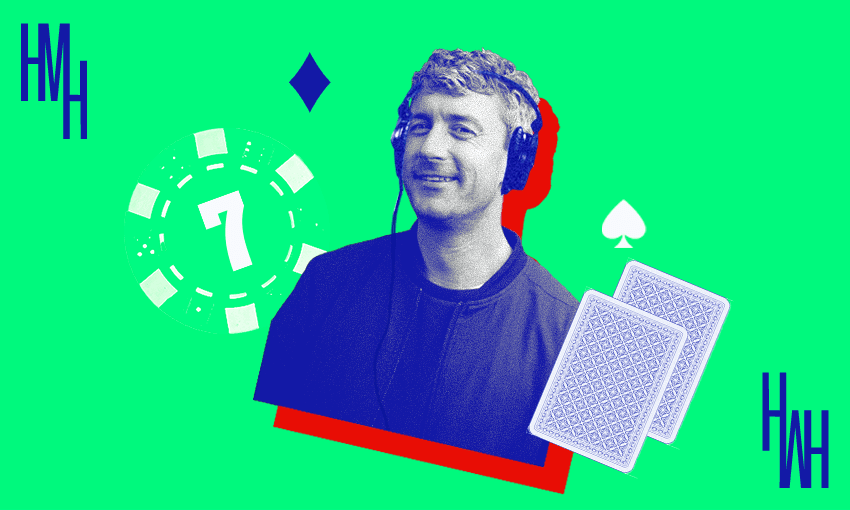‘Having a functional sense of doubt is as much a part of being an artist as having wealthy benefactors (Da Vinci) or being able to paint horses good (Stubbs).’
Want Hera’s help? Email your problem to helpme@thespinoff.co.nz
Dear Hera,
I want to be able to share my art and poetry and music without doubt in my heart. How do I acquire the confidence of a straight white man with a podcast?
First of all, let’s hear it for straight white guys with podcasts. Sure, some of them are pedantic misogynists with confiscated-beyblade energy. But many belong to a fundamentally sound demographic: weird guys with niche hobbies. How else could I listen to over 200 hours of free, in-depth, extensively researched British history, complete with galloping horse sound effects, while darning my socks on cold winter evenings? Anyone who chooses to regularly record then broadcast their own conversations on the internet is clearly insane, and therefore to be feared and respected.
Trying to make art without doubt in your heart is like building a fireworks factory without a working smoke detector. Having a functional sense of doubt is as much a part of being an artist as having wealthy benefactors (Da Vinci) or being able to paint horses good (Stubbs). But in order to trust your doubt, first you have to understand what it’s telling you. Is Lassie barking at the postman or has Timmy fallen down yet another village well?
Is your doubt about the horror of courting perception? Or are you unsure about the work you’re putting out? If it’s the former, that’s reasonable. I recommend hitting send, and taking a long agitated walk to the duck pond. Or doing something disproportionally stressful and annoying, like filing your taxes or cleaning the oven. But if your doubt has to do with what you’re making, it’s worth trying to figure out why.
Sometimes we don’t know why something isn’t working. All we have to go on is a prevailing sense of unease. But trying to understand that unease is better than ignoring it. The beginning of any artistic career is inherently annoying. Just because you can appreciate the cool, declarative prose of The Babysitter’s Club Winter Holiday Special, doesn’t mean you can write like A. N. Martin. But doubt isn’t just a personal insecurity to torture yourself with. You can use it to identify the areas of your work which aren’t working. Reading things aloud is a great way to exercise doubt. I always find I race over the parts which I subconsciously know need improvement. I’m assuming the same thing works for music, or being cast as Hamlet in the school play.
The biggest cheerleader on the subject of productive doubt is George Saunders, whose whole deal is basically gruelling, repetitive, sentence-based revision on a level calculated to stagger humanity. I think his advice about tuning into your doubt during the editing process is applicable to lots of things, including making a good sauce or cutting your hair. I also like his story about “avoidance points”. But knowing how something is wrong doesn’t mean knowing how to fix it. Maybe there’s something fundamentally unsatisfying about the denouement of your murder mystery? Maybe your taut supernatural thriller is begging to be reimagined as a sitcom about a haunted bed and breakfast. No worthy problem is ever solved on the plane of its original conception, and that’s as true for B grade fantasy epics as it is for quantum physics.
I’m not saying you should aim for perfection. There are times when messy is better. You can overwrite your work so much it becomes tediously sleek and joylessly articulate. Sometimes you need to give a seven minute primer on sedimentary rock formations in order to pull off your geologically complex joke about the Flintstones.
You will get it wrong, no matter how hard you try. Even if you successfully eliminate all present doubts, you’ll only discover new, retrospective doubts that it didn’t occur to you to harbour the first time. But in order to have doubt, first you have to believe.
Doubt is a useful counterbalance, if you’re already off the ground. The doubt that stops you trying is the kind that does nobody any good. If you haven’t been through Dante’s nine levels of Steiner School, it can be hard to summon that kind of confidence from thin air. The best way to become confident is by increments, or whispering I am Bill Gates CEO of Microsoft each night before bed. You could also find a few people you trust to give you critical feedback and encouragement. But you may as well befriend your doubt. In the end, it’s just a backwards manifestation of faith.
Best of luck,
Hera
Want Hera’s help? Email your problem to helpme@thespinoff.co.nz



